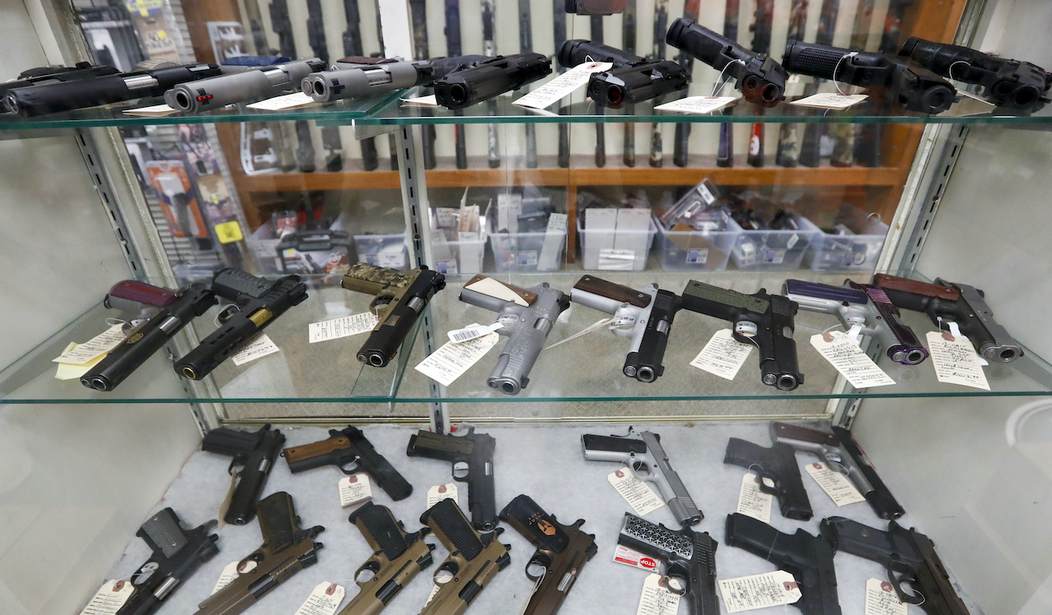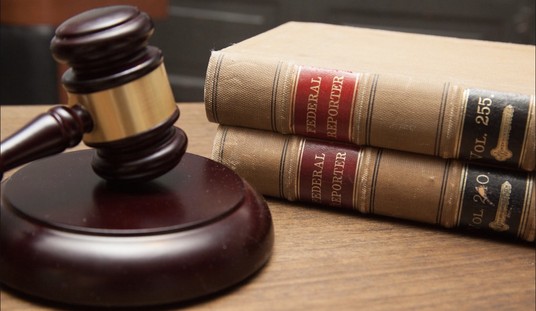One of the many quirks when it comes to federal gun laws involves the shipping of firearms. It's perfectly legal to use the United States Postal Service to mail a rifle or shotgun, but it's a felony punishable by up to two years in prison and a $250,000 fine to ship a handgun through the U.S. Mail.
That oddity is the subject of a new lawsuit filed by Gun Owners of America and Gun Owners Foundation, but it's not the only legal action undertaken by 2A groups this week dealing with the issue of handguns and interstate commerce. The Firearms Policy Coalition is also taking aim at the federal law prohibiting interstate transfers of handguns from federally licensed dealers to individuals. Together, the two lawsuits could lead to the first major reforms shipping and transferring firearms in decades.
GOA's lawsuit, known as Shreve v. USPS, contends that the law prohibiting the use of the postal service to mail handguns is an historic relic dating from the 1920s without any bearing or relationship to the national tradition of gun ownership.
Dating only to 1927, this Prohibition-era firearm regulation prohibits ordinary Americans from mailing handguns using the U.S. Postal Service, even for perfectly lawful purposes. But this vestigial regulation has outlived its Prohibition-era roots, having been enacted during a time with no other federal controls on the interstate sale or shipment of firearms on the books. And more importantly, it fails to comport with the original public understanding of the Second Amendment, which accommodated no federal controls on the domestic mailing of firearms at the time of the Founding. Section 1715 should be declared unconstitutional, and its continued enforcement enjoined.
The U.S. postal system has been around for 250 years, but as GOA points out, this regulation wasn't put in place until the late 1920s. For nearly 150 years it was perfectly legal to mail a pistol, so it's going to be difficult for the USPS to argue that this prohibition comports with the national tradition of gun ownership.
The Supreme Court has held that the government doesn't have to identify a historical twin in order for a modern gun law to be upheld, but there must be analogous principles at work. GOA argues that "at no point did the Founders ever criminalize the mailing of handguns as the challenged statute does now."
Nor did the Reconstruction generation criminalize such conduct, which only confirms this Founding-era understanding. And because “20th-century evidence … does not provide insight into the meaning of the Second Amendment when it contradicts earlier evidence,” this 1927 law simply cannot stand on its own.
The FPC's lawsuit challenging the ban on interstate transfers of handguns from federally licensed dealers to individuals was filed back in January, but this week the group moved for summary judgement, arguing that the Department of Justice failed to cite a single law "that burdened the right of peaceable citizens to acquire arms in another state or colony in any way like the laws .at issue here, or for anything approaching the same reasons."
That is fatal to the Government’s case; though it repeatedly stresses in its briefthat the law at issue enacts, in its view, only a minor limitation on the right, theSupreme Court has foreclosed exactly that type of argument. Only history can excusethe Government’s regulation of the right to acquire handguns from licensed dealers,and history does no such thing.
In its first reply to the FPC's lawsuit, the DOJ maintained that the law passes constitutional muster because it "facilitates compliance with state law and advances Congress’s interests in precluding dangerous individuals and criminals from obtaining handguns."
At the same time, it only modestly burdens the right to keep and bear arms, serves legitimate objectives, and aligns with the nation’s regulatory tradition of regulating firearm ownership. Nothing in that framework, for example, prohibits the purchase of any type of handgun for any lawful purpose. The challenged regime, on the whole, is the type of firearm regulations that the Supreme Court identified as “presumptively lawful” in Heller, McDonald, Bruen, and Rahimi. It is also in keeping with a historical tradition from England, the colonies, and the Founding of government regulation, including commercial regulation, to ensure only law-abiding citizens obtained and possessed firearms, and to keep potentially dangerous individuals from obtaining them.
The biggest flaw in the government's reasoning is that an out-of-state buyer still has to pass a background check before they can purchase a firearm at retail. The prohibition does nothing to specifically prevent prohibited persons from possessing a firearm. It simply adds a layer of red tape to the purchase of a pistol.
The law also doesn't apply to the purchase of long guns. The DOJ contends that only proves that the prohibition is a modest burden on the right to keep and bear arms, but FPC argues the statute imposes "both a logistical and a monetary tax on the right to keep and bear arms", since some FFLs will refuse to perform interstate transfer services, while those that do tend to charge a fee for the service.
Additionally, the law burdens citizens from acquiring the quintessential firearm for self-defense unless they're in the state where they reside. That's not a "modest" burden on the Second Amendment. It's a major imposition on those folks who decide they want to have a handgun for personal protection while they're away from home.
... the Government’s justification for the Ban requires misunderstanding how severe the Ban actually is, and it is precisely the sort of interest-balancing reasoning that the Supreme Court has forbidden. The question, for this Court, is whether these historical laws evidence a principle that residents of one state can be barred from purchasing a firearm in another state to advance thegoal of keeping prohibited persons from acquiring handguns. They do not.
Both of these lawsuits are in their infancy, so we might not see results for some time. If GOA and FPC are successful in their litigation, however, it will be much easier to legally acquire a handgun for self-defense (or other lawful purposes)... and federal law will treat all firearms on a level playing field rather than singling out handguns for special treatment and restrictions.









